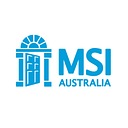In a world of infection control, we need to talk more about sex: why condoms and other health products are essential in a pandemic

From next week onwards, Covid19 rapid antigen testing kits will be available at supermarkets. While most health products are not 100% effective, they empower us to take control over our own bodies and lives.
The testing kits marks a new era for self-administered healthcare, where we will all have increased control over Covid19 infection risk, screening and prevention.
This concept of self-administered health products is not new, for example we’ve had access to condoms for decades. During the pandemic condoms have been critical in providing a consistent and accessible health product.
Here we explain how condoms, and health products more broadly, can protect not only our bodies but also our health systems.
Condoms are PPE
Many people have started speaking confidently about epidemiology, yet most still hesitate when it comes to talking about infection control and STIs.
STIs will always be a risk, and some are currently on the rise. Like any other personal protective equipment (PPE), condoms reduce or prevent fluid transfer.
Condoms can prevent STIs, and can be used together with more LARC methods. With a bit of creativity, a condom can also be used to make a dental dam.
Condoms are self-administered health products
Health products include things like pads, menstrual cups, bandages, swabs, needles, ice or hot packs, medication, mindfulness apps or e-therapy programs. They are self-administered as you use them yourself, following medical advice.
Condoms are health products. You can pick them up in a store, or order them online, or if you’re lucky you may be able to access them free at a community centre or health clinic. You learn how to use them and you use them either alone or with others.
Free health products protect health systems
Self-administered health products help ease the burden on the health system capacity. We are facing a global health worker shortage. By 2030 we will have a global shortage of 18 million healthcare workers. We not only need to train more health workers, we need community education to prevent and treat health concerns within our own communities.
If we can distribute free or low cost health products, we will reduce the future burden of healthcare provision. HERO Condoms has donated over two million condoms internationally, and over 100,000 condoms in Australia. Since the pandemic began, HERO Condoms has donated over 20,000 condoms through our clinics.
Self-administered health products are the future
Prior to the pandemic most people self-administered some aspect of health care, commonly in the form of first aid products like adhesive bandages or disinfectant. People with disability have historically self-administered care, and more often, with things like pain relief products or the injection of medication.
During the pandemic, due to movement restrictions, infection control health products have had to become more accessible. Health products via telehealth care, e-scripts, pharmacy delivery and local libraries and community centres has put the power of healthcare back in the hands of our communities.
Low cost or free health products enable better health outcomes. All health products, including condoms and rapid antigen tests, give us greater control over our own bodies and lives.
Contraception.org.au has tailored contraception resources for communities and medical professionals. Have some curious questions about contraception? We guarantee you’re not the only one.
Jamal Hakim is the Managing Director at Marie Stopes Australia. He currently holds several board appointments, including with Democracy in Colour, MS Health Pty Ltd and Marie Stopes Papua New Guinea. In 2020, Jamal was elected as a Councillor for the City of Melbourne. You can follow Jamal on Twitter.
